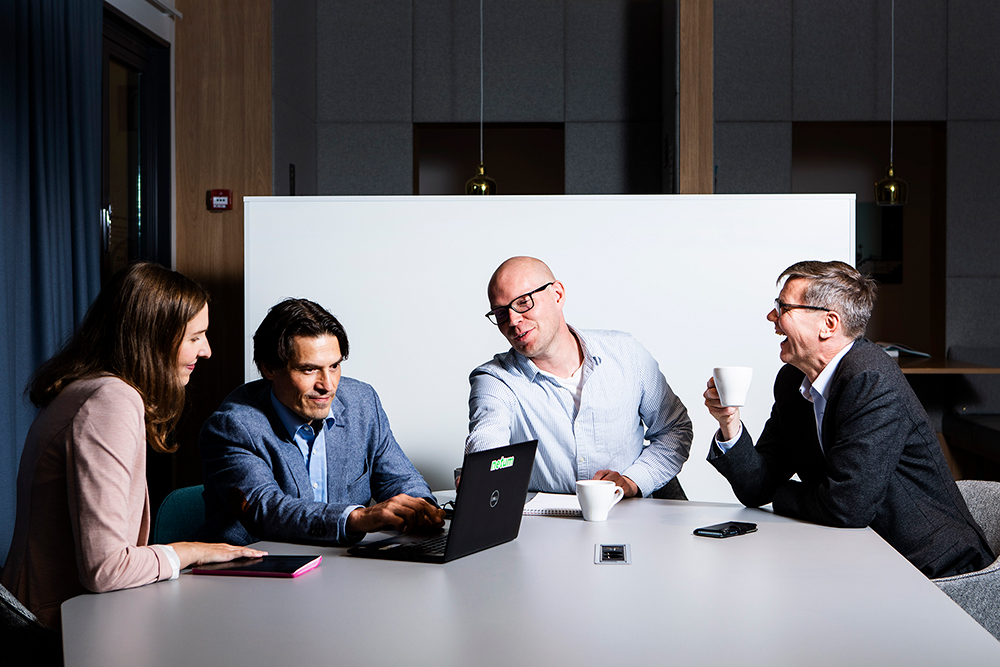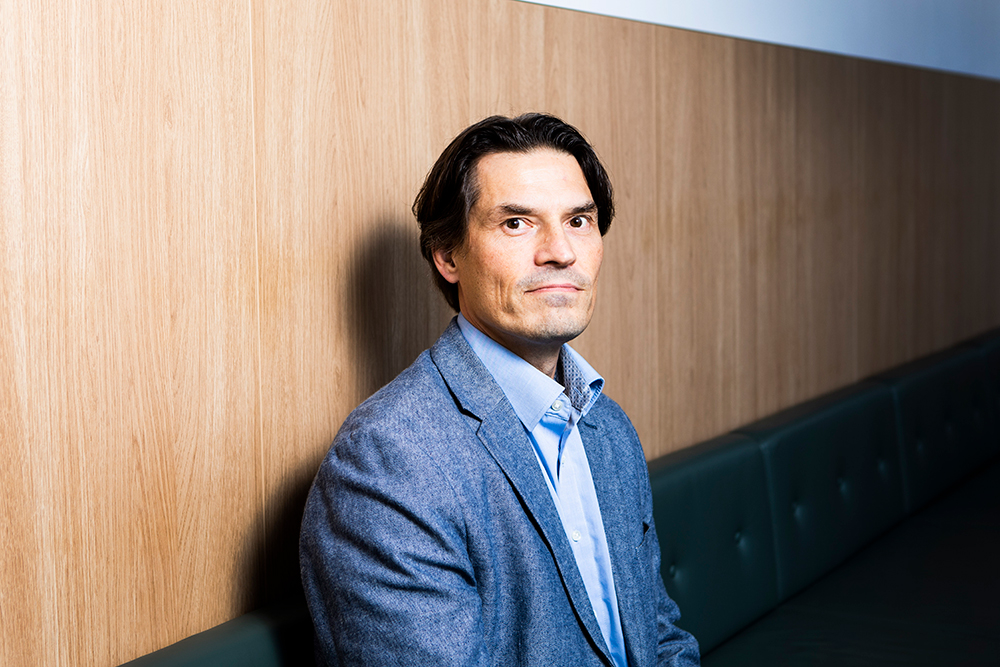 Jenni Lehtonen, Senior Specialist at the Ministry of the Environment, is delighted with the enthusiasm and motivation of Netum's experts in developing the waste and product information system.
Jenni Lehtonen, Senior Specialist at the Ministry of the Environment, is delighted with the enthusiasm and motivation of Netum's experts in developing the waste and product information system.
The Ministry of the Environment clarified the needs of the Waste and Product Information System, and implementation options, alongside Netum’s experts
The aim of EU and Finnish waste legislation is to ensure that we use natural resources wisely. To minimise waste related risks, accurate waste data is needed. Netum's experts helped the Ministry of the Environment identify how the waste and product information system under development could best meet the changing demands of both legislation and users, and how best to implement it.
Development of the national waste and product information system is a broad undertaking. In addition to several interlinking systems, the design must take into account the needs of different authorities and other user groups, as well as changing legislation. According to Jenni Lehtonen, Senior Specialist at the Ministry of the Environment, the technical expertise and experience of Netum's experts in public system projects were important to the progress of the system project.
“The ability of Netum’s experts to familiarise themselves with the functioning and problems of the current systems, and the development needs of information systems, played a key role. They enabled us to clarify the vision and key objectives of the waste and product information system.”
Legacy to Digi concept enables the combination of new with old
The development of the information system was preceded by an identification phase for development needs, which was carried out in collaboration by experts from Netum and AFRY Finland Oy. At present, waste data is collected in a number of national and local systems, the most important of which are the electronic e-service system for environmental protection control, YLVA, with its various sections, and the register of international waste shipments.
The data collected in the current systems forms the basis for Finland's waste statistics and EU reporting. Netum's experts have helped the Ministry of the Environment to identify how the foundations of previous systems could be used and what best to build from scratch.
“The waste and product information system under development is based on existing systems, but a new part of the system will be created to register shipment-document data used for waste shipments in Finland. A key innovation in waste data collection is the use of electronic transmission documents and the storage of their data in the register," Lehtonen describes.
Netum's Legacy to Digi concept is particularly suitable for system projects of this kind, which seek to make wise use of existing structures.
"Not everything needs to be changed at once. Usable parts of the old system can easily be included in the new service," says Jari Jokinen, Netum's leading consultant.
-

Jenni Lehtonen works as a specialist in waste and circular economy issues in the Material Economics Unit, Environmental Protection, at the Ministry of the Environment.
-

“The theme of the project is of personal importance to everyone. I found it interesting to see how the overall waste process works. I am motivated by the idea of being able to contribute even more effectively to its development," says Pekka Nieminen.
-

Eero Kuitunen believes that the cooperation has provided useful material, enabling experts from the Ministry of the Environment to engage in further discussions on the system project.
The Waste and Product Information System will make this information more accessible to public authorities
The system under renewal will better correspond to the changing needs of the circular economy and waste management reporting and monitoring. Experts from Netum and the Ministry of the Environment have explained how to improve the quality of information, the user-friendliness of systems, and the flow of information between them.
The information and concept model will improve the quality and usability of data
The main challenges in the information flows, quality and usability of the current systems are due to the lack of a common data and conceptual model. To improve the quality of the data in the renewed waste and product information system, a bespoke data and concept model has been designed to define issues such as uniform concepts. Netum's Information Architect Pekka Nieminen was in charge of this work.
“Poor quality information is a major challenge for modern systems. It has been difficult to enter data, and it is easy to create decimal errors or use the wrong waste code, for example,” Nieminen explains. However, the resourceful expert has many ideas on how to improve the quality of information in the new system.
“Monitoring is now based on an annual report done in online form. What if the data was created at the time the waste was generated: when it is collected and weighed? For example, the type and weight of waste could come directly from digital scale systems, making comma errors rarer and, in principle, providing higher quality information," Nieminen envisions.

A better user experience makes reporting easier and data more accessible
The EU waste directives, which changed in 2018, and the new Disposable Plastics Directive adopted in 2019, have introduced new obligations for the collection of waste data. The aim of the new waste and product information system is therefore to make reporting smoother, for example by improving the system's user-friendliness and increasing the level of automation. Service Designer Eero Kuitunen has examined how usability could be developed.
"Although user-friendliness is a very important starting point for design, in this case issues such as changing legislation set their own requirements and challenges. What's important, however, is that the new system should be natural to use – so that the user needn’t separately learn how to use it."
Guidance and user support will also be stepped up. The Ministry of the Environment aims to make waste data available to the wider public in addition to public authorities and companies.
“The aim is to open the system information up to the public, taking account of confidentiality regulations. This would allow citizens, businesses and researchers, for example, to make better use of them,” Lehtonen explains.
Enthusiastic and skilled experts take care of the project's progress and cooperation
In addition to their technical know-how and experience, Lehtonen recalls the enthusiasm of Netum's experts in relation to the system project.
“I am delighted with how enthusiastic and motivated Netum's experts were on the theme of the project. They have also ensured that the project proceeds according to plan and that cooperation with stakeholders is smooth. I would particularly like to thank Netum for the flexibility they showed on several occasions.”